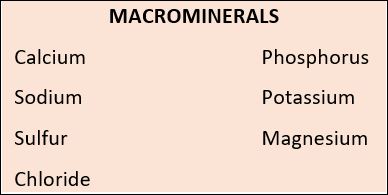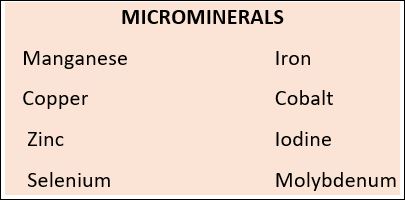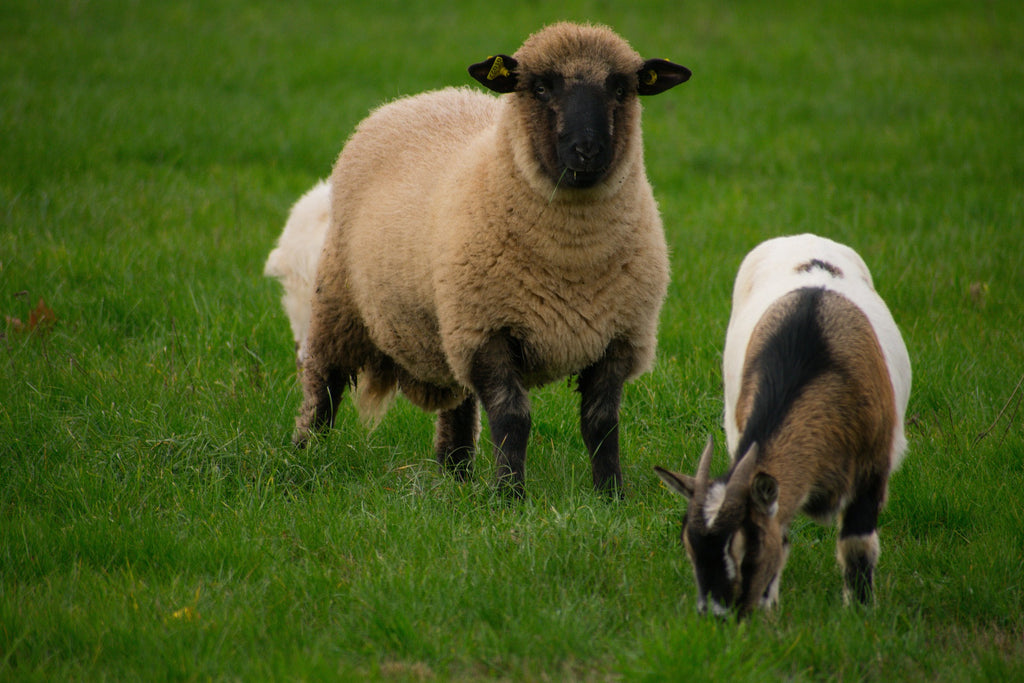Sheep and goats require a range of macromineral and micromineral nutrients in their daily diet.
Macrominerals are the major ones that are required in larger amounts for all body tissues and functions, especially providing nutrients needed to support bones and muscles.

Microminerals are needed in much smaller amounts and are essential for connective tissue and enzymatic reactions which support immunity, reproduction, and many other physiologic functions.

Sheep have a minimum requirement of 5 ppm copper in their daily diet. They have a narrow range of minimum and maximum tolerances, however, and too much copper can be toxic or even fatal.
![]()
Goats, on the other hand, have a higher requirement and tolerance for copper. Not all livestock feeds will be appropriate to feed to both goats and sheep, so understanding what copper level is in the feed is important if you raise both. Working with a livestock nutritionist to ensure you provide an ideal range that promotes health, fertility, and soundness without getting too much copper or an imbalance of trace minerals that will affect absorption of other nutrients is recommended.
Selenium is a trace mineral that is important but found in varying levels in soil throughout the US. Areas in the Western US can be excessive. MD has selenium deficient soils. Forages uptake selenium well, so levels of selenium in forages grown in the mid-Atlantic will be deficient too. It is unlikely that we would see selenium toxicity in small ruminants in our area unless over supplementation was occurring. Feed regulations do not allow for high levels of selenium in feeds.


TM blocks are over 98% sodium with minimal amounts of trace minerals in them. Livestock will stop consuming salt once they meet their requirement within 90% accuracy, and they would not lick enough of the blocks to meet a daily requirement of trace minerals for good health and rumen function.

There are several good brands of ‘loose’ mineral available which can be fed ‘free choice’ or mixed into grain. Each of these minerals have recommended feeding rates based on meeting salt, calcium and to some extent phosphorus needs. There is less salt in these mixes than a trace mineral block, so the intake will not be limited by excess sodium. The other minerals are supplied in levels assuming the intake is close to needs for sodium and calcium. These mixes are appropriate to balance the diet more accurately than TM Blocks.

The Mill has a terrific selection of loose minerals for sheep and goats, as well as protein and molasses tubs with added vitamins and minerals. There are even specialized minerals and tubs for females during breeding, gestation, and early lactation times of the year. All small ruminants should have a superior quality loose mineral available year-round and intakes should be monitored during periods of grazing and low grain feeding to ensure adequate intake is occurring.


























